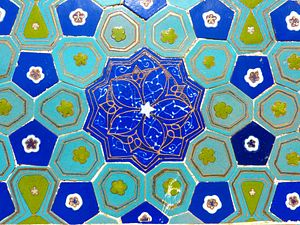The leaders of the five parties contesting the upcoming Uzbek parliamentary elections held their first debates on November 10. The parliamentary elections are scheduled for December 22, 2019. The debate was the first of its kind, moderated, with a half a minute limit for party leaders to respond and react to questions given by other party members and journalists or bloggers.
Questions from other paries were tackled first. Party-to-party questions came across as carefully crafted as if to avoid burdening the responder and, more importantly, the questions were relatively dissociated with issues average Uzbeks arguably care about most. When journalists and bloggers were given turn to question the party leaders, their questions were more pointed and livened up the debate. The answers to the journalist questions shed some new light on some important questions, one of which was on foreign policy and the other on domestic policy.
The foreign policy question was on the Eurasian Economic Union (EAEU) and whether the Milliy Tiklanish and Liberal Democratic parties, the leaders of which had expressed opposing opinions on Uzbekistan’s accession to the union, still maintained their divergent positions.
In response to the question, unexpectedly, the party leader for Milliy Tiklanish reversed his earlier statement of vehemently opposing Uzbekistan’s possible accession. A month prior to the debates he called the possibility of joining the union the second Soviet Union and called the EAEU a merely political organization. During the debates, however, he stated his party “supports any organization that will benefit the country’s economic and political development.” He added the Uzbekistan’s State Concept until 2031 prioritized membership with the World Trade Organization (WTO) and cooperation agreement with the EAEU and that Tashkent was adhering to that plan.
Uzbek Minister of Foreign Affairs Abdulaziz Kamilov recently announced that Tashkent wishes to finish WTO negotiations as soon as possible
The Liberal Democratic Party’s response confirmed that despite Kamilov’s statement in 2017 that Uzbekistan had no plans to accede to the EAEU or the Collective Security Treaty Organization (CSTO), EAEU membership had been in the agenda for the party since 2016. The party leader reconfirmed seeing Uzbekistan eventually in the union.
In a turn toward domestic issues, a journalist asked about party leaders’ silence on domestic inflation and the ever-increasing prices for goods, but stagnant wages. While party leaders attempted to answer the question, it became clear that the consumption basket for Uzbekistan has never been set, likely to conceal low standards of living. The most provocative answer came from the leader of the People’s Democratic Party, who blurted out that a family of five can live in Tashkent for 2,500,000 soums ($250). That statement invited backlash from other parties and journalists. All party heads agreed that setting an amount without defining a minimum consumption basket was wrong.
The debates revealed that the driver of the EAEU accession process had been the Liberal Democratic Party, the president’s party and the one with the current largest block in parliament. It is unclear however whether membership consideration was “ordered” by President Shavkat Mirziyoyev himself or it was “implanted” by party members to the president. Despite the genesis of the deliberations, the process seems to be secluded to the point that even those close to the presidential administration were unaware of the consideration pf the possibility of joining to the EAEU. The debates also made clear that there is no real opposition to the EAEU membership among political parties, now that Milliy Tiklanish has apparently aligned with the ruling party.
On balance, the debate allowed new ideas to surface. More importantly, the debate is a step on the path to training journalists to ask tough questions and party leaders to answer them. Responses from party leaders are at times awkward and that is a part of this learning process. Similar debates should allow political parties to start moving away from homogeneity of their party ideology so people can start identifying parties by their position rather than solely by their names.

































